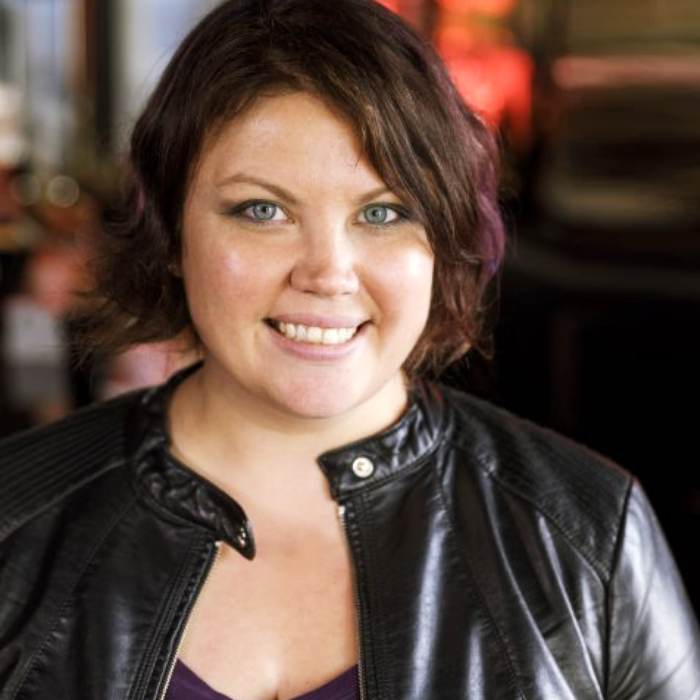Email: [email protected]
Call: 702-318-8446
Katherine Wojcik on Wining, Dining and Winning in 2021
What is the current state of affairs where you work?
We’re pretty much in the same boat as many other companies, though every company—hospitality and other industries—has its unique set of differences in how our businesses were affected and how we mitigated and survived the past year. We’re lucky with our restaurants and bars in that they are locally loved and part of the community. Often, our guests will dine at our restaurants and not realize they are attached to a hotel. This allowed us to have a more robust to-go offering than some of our hotel competitors, though not as busy as some large restaurant chains and all dependent upon location. We’re currently in the ramp-up phase and, as states reopen and lift restrictions, we’re preparing for one of the best summers ever! We want to welcome our guests back safely, and guests will look to us to fulfill what they’ve been missing, whether it’s an expertly prepared drink at a bar, a dinner with friends and loved ones, or a delayed celebration.

What do you see happening in your industry or workplace in the next 30/60/90 days? What about in the long-term: one year, five years, 10 years?
As I mentioned, this will be one of the best summers ever! People want to get out but might not be comfortable with flying. We’re seeing a lot of road trip guests, and Americans are swapping their European vacations for something closer to home. We’re bringing back our employees, but it’s difficult.
The next 90 days are crucial for hospitality workers to come back to work and for us to attract new talent.
Longer-term, I think we’ll see a shift in service models. High-touch service has been slightly muted and, with smaller teams, restauranteurs will need to find creative solutions to be able to run their businesses, not to mention deliver exceptional service. I also hope we see some menu changes and new trends. Every time I’ve gone out to eat in the last few months, someone at the table comments that they want to order something they can’t prepare at home. I hope some newly adventurous diners emerge and are excited to try new things.
Travel-wise, people are so ready for their next vacation. The extra time at home has allowed us to do better research of dreamy destinations. Those once-in-a-lifetime travel destinations will become more of a reality and, with that, travelers will have high expectations.
What permanent effect or change or long-term impact could the pandemic have on your industry or workplace? How will your industry have to change to adapt to the “new normal”?
Staffing is a huge issue. Many talented, creative, and knowledgeable employees, including chefs, bartenders, and sommeliers, have moved on or have found something completely new. In some cases, operators have to train entirely new teams. Attracting new talent and providing training is a top priority. Competitive wages and benefits are just one part of the package. New priorities have emerged during the pandemic, such as spending more time with family, focusing on a hobby, or committing to a healthy and balanced lifestyle. As we plan for the future, the way we lead our teams and foster a balanced work/life environment will be key in retaining talent. The “new normal” might include providing a less grueling work schedule to managers and leaders, four-day workweeks, or more time off, paid or unpaid. All this might affect restaurant hours of operation, holiday schedules, and perhaps menu decisions, to be feasible. Working 60 days in a row is no longer a badge of honor; balancing work, personal time, and other interests will be. I see a big shift in resources and talent as we usher in a new generation of workers coming of age or entering the hospitality industry for the first time.
What new skills have you learned or goals have you set or met in the last year?
I love thinking about this past summer, as I was furloughed for a few months, and made a conscious effort to work hard each and every day. I wanted to take advantage of every free day, as I knew (and hoped) there would be an end to the “sabbatical.” As some people have experienced, having a break from work lends itself to rediscovering interests and finding new passions. Surprisingly, I focused on my construction skills—I painted the exterior of the house, built garden boxes, and installed landscaping features. I painted multiple rooms indoors and replaced trim and hardware. Next up: renovating the kitchen! Professionally, I was sure to set aside time each day to read books regarding wine, various categories of other beverages, and history. I wanted to stay fresh for when I returned to work. Having the extra time was a blessing to finally be able to pick up those books and learn something new. I finally got through that stack of Wine Spectator magazines that were collecting dust.
What unique challenges do women in your field or role face? Have you encountered them? How did you confront/overcome them?
The hospitality industry is constantly evolving and fast-paced, with generational and cultural differences. The travel industry is, by its very nature, global. There are many challenges that women face in the industry, and they are unique and different based on the country, type of organization, and leadership of the company. I’ll just tell you about a few that I encounter or have encountered regularly.
At the beginning of my career, things were different! In a sea of men, there were few women in leadership positions in the hospitality world. Being outnumbered changes the dynamic of the team or group.
It’s difficult to be yourself in this situation of male leaders, and you adapt to the majority culture.
In that respect, it’s incredibly difficult to develop your own leadership style, to find the most effective way to communicate and to realize how you contribute to the success of the organization. Without that female role model, it was challenging to find other perspectives and ways of working that might better fit my personality and work style.
When outnumbered, a woman, or any person other than the majority culture of the group, might never make it to the “Inner Circle,” and this affects promotions, opportunities, and gives privilege to those who benefit from a closer working and personal relationship with the leadership group. Specifically, being left out because you don’t play a particular sport or being told to go shopping with the “wives” also puts one at a disadvantage. Confronting this is quite challenging; an empathetic team will understand this when addressed, and attempt to find a solution. Other times, not so much. But I’ll say “Yes” to any opportunity and not allow fear or lack of skill to get in the way.
Another challenge is the assumption of gender-based roles and sometimes unintentional bias. One example that most people recognize is the Housekeeping department, where the majority of the staff is female. This is true for many positions within the industry—females at the host stand, males as the bussers—and also varies by culture and country. When referring to departments with a gender attached, such as “housekeeping ladies,” or referring to the kitchen staff as “the guys”, we sometimes enforce this unknowingly. I am a strong believer in diversity of all types: gender, race, age, education, experience, language… the list goes on. Diverse teams are so impactful, and the possibilities and benefits are endless. In the beverage industry, we travel quite a bit and perhaps imbibe from time to time. It was once suggested to me that I consider moving to the Spa Department so that I could think about starting a family. After relaxing my face from the initial shock, a simple and direct “No” was sufficient to close the conversation.
Who is a woman or nonbinary individual in your industry or organization that you think has been doing something positive, helpful, crucial, or impactful? What have they contributed?
There are so many leading ladies in our industry, it’s hard to name just one, as they inspire me daily. Currently, there is such an amazing collaborative vibe among women in the beverage industry, everyone is looking to each other to elevate or to learn from. We share ideas, best practices, and industry knowledge, and congratulate one another on our successes. The women in these groups provide a shoulder to cry on or, if crying isn’t your thing, perhaps a shot of whiskey or an ear for listening. In the past, the competition was fierce and not always friendly. Tools and resources were never shared, and competitors were never in the same room. I celebrate the women who lead these groups and contribute their time, passion, and energy to changing the conversation and bringing us together.
As female leaders in this industry, we need to continue to nurture and foster strong roles for women. This is especially important for the next generation of leaders as we continue to pave the path.
I know I didn’t name a particular organization. Whether it’s food service, beverage-focused, or hospitality in general, I encourage every woman to find and join a group that fits their sector, career path, or need. There are many from which to choose!
What advice do you have for women who are either preparing to enter your industry or had just entered your field? What can they do to succeed right now? How can they stay relevant or make themselves more valued at this time?
The quick answer: Find a role model, mentor, or what one of my former leaders called “an advocate.” Be confident and trust your instincts; they won’t disappoint you. Think of each decision thoughtfully, understand the consequence, and have no regrets regardless of the result. Know your worth, and take risks! One of my favorite quotes is from the film Auntie Mame: “Life is a banquet, and most poor suckers are starving to death.”
I love meeting new people in our industry and sharing insights. Anyone can reach me at [email protected].
